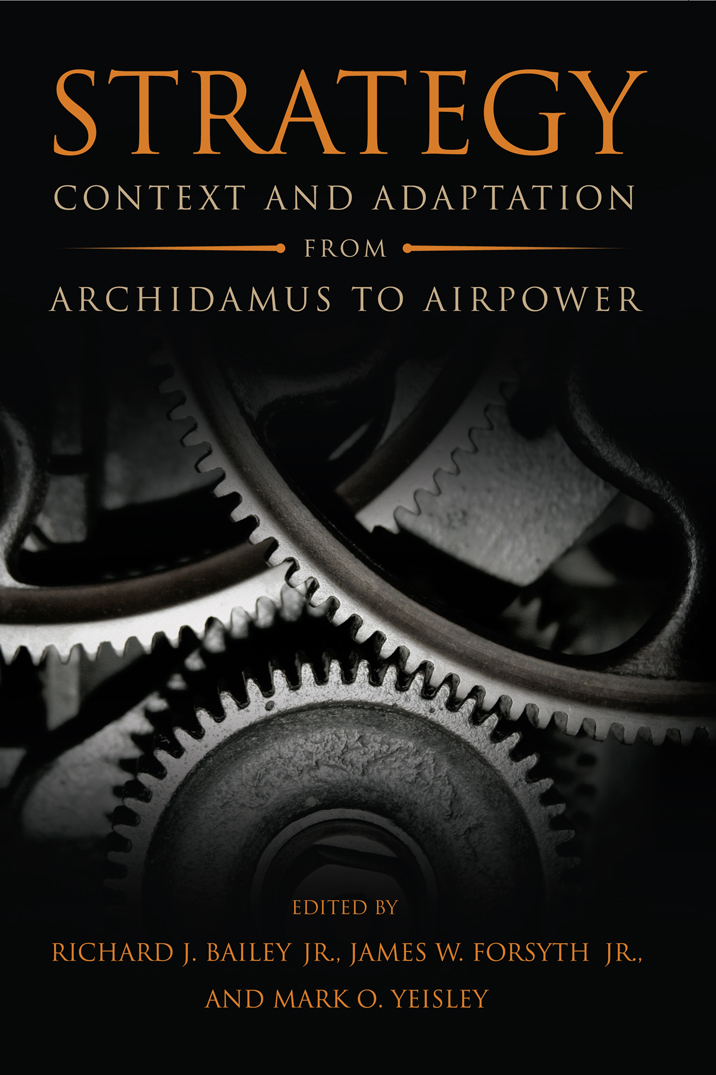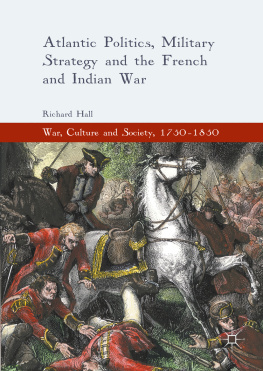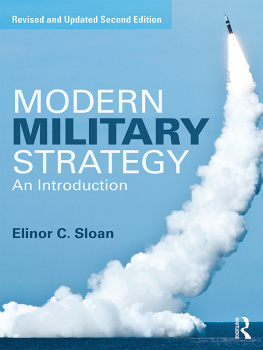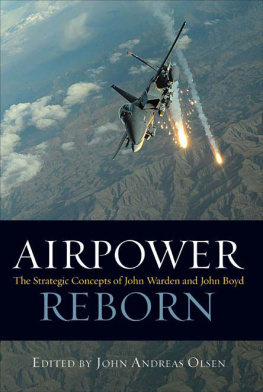

TITLES IN THE SERIES

The Other Space Race
Eisenhower and the Quest for Aerospace Security
An Untaken Road
Strategy, Technology, and the Hidden History of Americas Mobile ICBMs
Transforming War | Paul J. Springer, editor
To ensure success, the conduct of war requires rapid and effective adaptation to changing circumstances. While every conflict involves a degree of flexibility and innovation, there are certain changes that have occurred throughout history that stand out because they fundamentally altered the conduct of warfare. The most prominent of these changes have been labeled Revolutions in Military Affairs (RMAs). These so-called revolutions include technological innovations as well as entirely new approaches to strategy. Revolutionary ideas in military theory, doctrine, and operations have also permanently changed the methods, means, and objectives of warfare.
This series examines fundamental transformations that have occurred in warfare. It places particular emphasis upon RMAs to examine how the development of a new idea or device can alter not only the conduct of wars, but their effect upon participants, supporters, and uninvolved parties. The unifying concept of the series is not geographical or temporal; rather, it is the notion of change in conflict and its subsequent impact. This has allowed the incorporation of a wide variety of scholars, approaches, disciplines, and conclusions to be brought under the umbrella of the series. The works include biographies, examinations of transformative events, and analyses of key technological innovations that provide a greater understanding of how and why modern conflict is carried out, and how it may change the battlefields of the future.

Naval Institute Press
291 Wood Road
Annapolis, MD 21402
2016 by the U.S. Naval Institute
All rights reserved. No part of this book may be reproduced or utilized in any form or by any means, electronic or mechanical, including photocopying and recording, or by any information storage and retrieval system, without permission in writing from the publisher.
Library of Congress Cataloging-in-Publication Data
Names: Bailey, Richard J., Jr., editor, author. | Forsyth, James Wood, Jr., editor, author. | Yeisley, Mark Owen, 1960 editor, author.
Title: Strategy: context and adaptation from Archidamus to airpower / Richard J. Bailey Jr., James Wood Forsyth Jr., Mark O. Yeisley.
Description: Annapolis, MD: Naval Institute Press, 2016. | Series: Transforming war | Includes bibliographical references and index.
Identifiers: LCCN 2016000958 (print) | LCCN 2016001466 (ebook) | ISBN 9781682470176 (epub)
Subjects: LCSH: StrategyHistory. | Strategy.
Classification: LCC U162 .S84 2016 (print) | LCC U162 (ebook) | DDC 355.02dc23
LC record available at http://lccn.loc.gov/2016000958

 Print editions meet the requirements of ANSI/NISO z39.48-1992 (Permanence of Paper).
Print editions meet the requirements of ANSI/NISO z39.48-1992 (Permanence of Paper).
24 23 22 21 20 19 18 17 16 9 8 7 6 5 4 3 2 1
First printing

Chapter 2 was originally published in a slightly different form as An Imperfect Jewel: Military Theory and the Military Profession, Journal of Strategic Studies 34, no. 6 (2011): 853877, and is reprinted by permission of the author, Harold Winton, and the publisher, Taylor & Francis Ltd, www.tandfonline.com. Chapter 7 was originally published in a slightly different form as Beyond the Horizon: Developing Future Airpower Strategy, Strategic Studies Quarterly 8, no. 2 (Summer 2014): 7495, and is reprinted by permission of the author, Jeffrey J. Smith, and the publisher, Air Force Research Institute.
To the students of the School of Advanced Air and Space Studies for their intellectual curiosity, dedication, and selfless service.


We are not schooled in the useless over-intelligence which can make a brilliant verbal attack on the enemies plans but fail to match it in consequent action. Rather we are taught to believe that other peoples minds are similar to ours, and that no theory can determine the accidents of chance. It is always our principle to make practical plans on the assumption of an intelligent enemy, and not to let our hopes reside in the likelihood of his mistakes, but in the security of our own precautions. We do not need to suppose that men differ greatly one from another, but we can think that the strongest are those brought up in the hardest school.

ARCHIDAMUS, KING OF SPARTA
THUCYDIDES, 1.84
Table of Contents
Guide
CONTENTS
Dennis M. Drew
Richard J. Bailey Jr.
Everett Carl Dolman
Harold R. Winton
James Wood Forsyth Jr.
James M. Tucci
Stephen D. Chiabotti
Richard R. Muller
Jeffrey J. Smith
M. V. Smith
Richard J. Bailey Jr.
Mark O. Yeisley
Stephen E. Wright
Mark O. Yeisley
T he School of Advanced Air and Space Studies (SAASS) may not be the hardest school Thucydides refers to in the epigraph, but it would likely rank high on the list. For twenty-five years the schools hard-nosed teaching faculty, composed entirely of PhD-level officers and civilian academics, has delivered a curriculum of stunning breadth and depth. The curriculum is focused on educating carefully selected field-grade officers to be tomorrows strategists and senior leaders. Subjects taught are designed to kit out would-be strategists with an intellectual panoply suitable for the modern-day Pericles. They range from military theory to international politics, from organizational behavior to technology and innovation, and from history to the heuristics of argument. While this volume does not attempt to summarize the SAASS curriculum, a careful reading could lead to an understanding of its structure and to a representative sample of its content. As with any first-class graduate school, the key to the reputation and ultimate success of SAASS has always been the faculty. As noted above, all its members are card-carrying PhDs, and all are teaching within their specialties. As demonstrated in this interesting collection of essays, their research and writing interests are quite eclectic. Note, for example, that included in this collection of articles are such diverse offerings as: a Socratic dialogue; a historians notions on educating airpower strategists; and musings about cyberspace and cyberpower. Eight other outstanding articles round out the bill of fare.
Next page














